River Tees dredging continues after marine life deaths
- Published
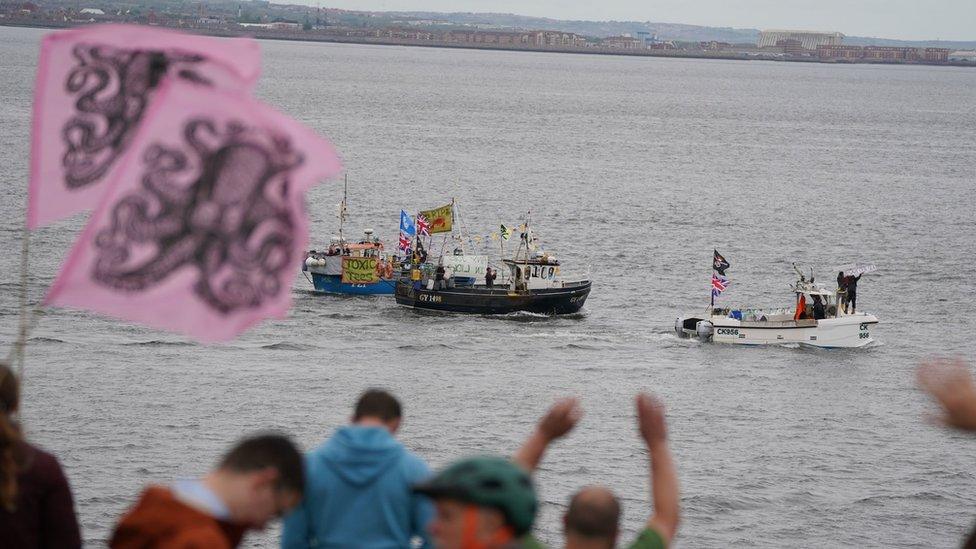
Fishermen and environmental campaigners during a protest in 2021
Dredging of the River Tees has continued after the government said it might never find the cause of thousands of crab deaths.
Thousands of crabs and lobsters have been found washed up across Teesside and North Yorkshire since late-2021.
Campaigners had said they believed the dredging, which restarted on Monday as part of the next phase of work, had released a chemical toxic to shellfish.
However, this was dismissed in a report which was released earlier this month.
A report said a disease or parasite new to UK waters may have been responsible.
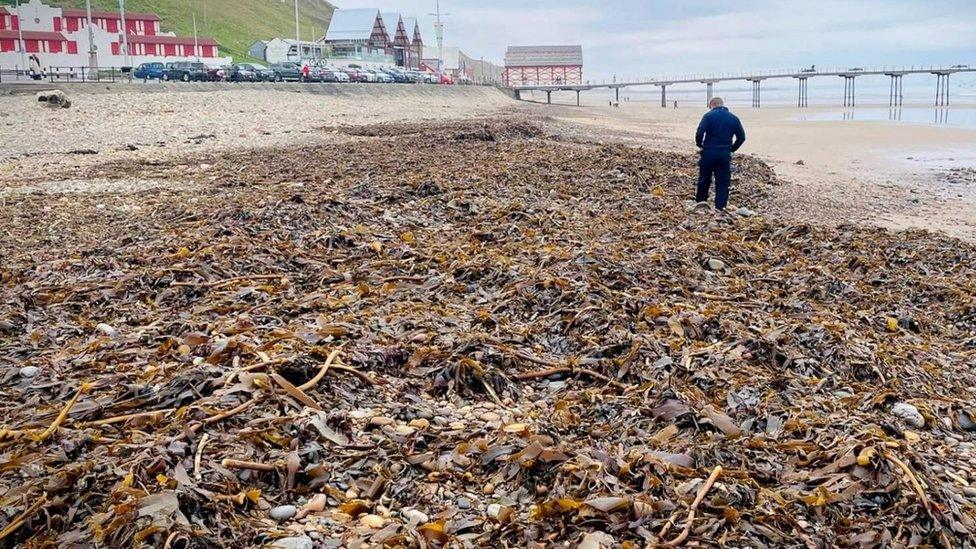
Dead crustaceans have washed up at several spots along the North East and North Yorkshire coast
But last week Environment Secretary Mark Spencer admitted scientists may never identify the source of the mass die-off.
Tees Valley Mayor Ben Houchen had said the science was "very clear as to what didn't cause it", including ruling out the first phase of dredging which finished in November, the Local Democracy Reporting Service said.
"We've supported those people who say we need to find what caused the die-off, and at the moment the most likely working theory is it could be a foreign pathogen or a disease that caused that," he said.
"Although we might not know what caused it, we've got a very, very strong set of data and science that shows what didn't cause it.
"That allows us to get on with the jobs we said we were going to deliver."
Export across world
The building of the Teesside Freeport is a key policy for the Conservative elected mayor and is intended to bring thousands of jobs to the area.
Mr Houchen, who claimed all conditions had been met, said dredging had been found to be safe and would continue to allow the safe passing of ships to export products across the world.
He also maintained dredging did not start until September 2022 - 11 months after the first reports of the mass die-off.
The second phase of dredging will see about a million cubic metres of material removed from the river bed deposited about seven nautical miles at sea.
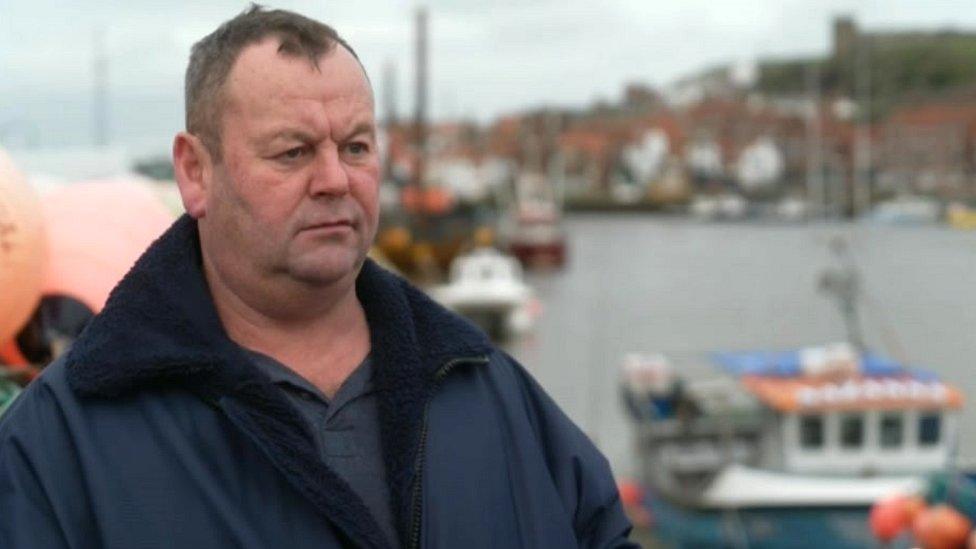
Lobster fisherman Adrian Noble said the shellfish deaths have been devastating
But fishermen and other campaigners last month said they feared more dredging would cause similar die-offs.
Marine biologist and fisherman Joe Redfern claimed the dredging "triggered" the deaths of shellfish that washed up on beaches and in catches.
Fellow fishermen Adrian Noble said he feared for the future if the cause of the "devastating" deaths was not identified and resolved quickly.
On Thursday, Labour MP for Stockton North, Alex Cunningham, called for a further investigation into the deaths.
Responding, Mr Spencer said there had been a "shared desire" to try and establish the cause, but said "unfortunately the way science works, is it is very difficult sometimes to identify exactly what is the cause".
"It is of course possible to rule out what it isn't. And that's what the expert panel has done."

Follow BBC North East & Cumbria on Twitter, external, Facebook, external and Instagram, external. Send your story ideas to northeastandcumbria@bbc.co.uk, external.
- Published26 January 2023
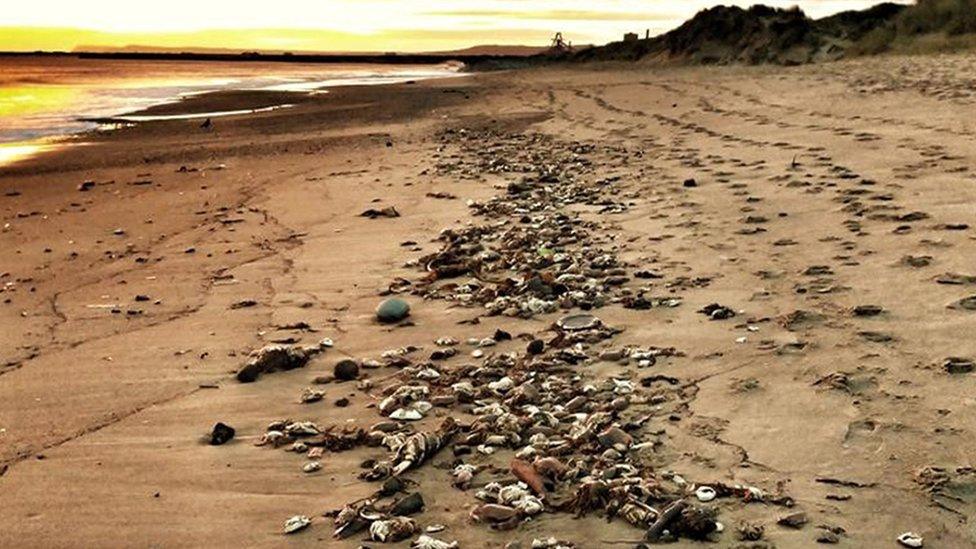
- Published20 January 2023
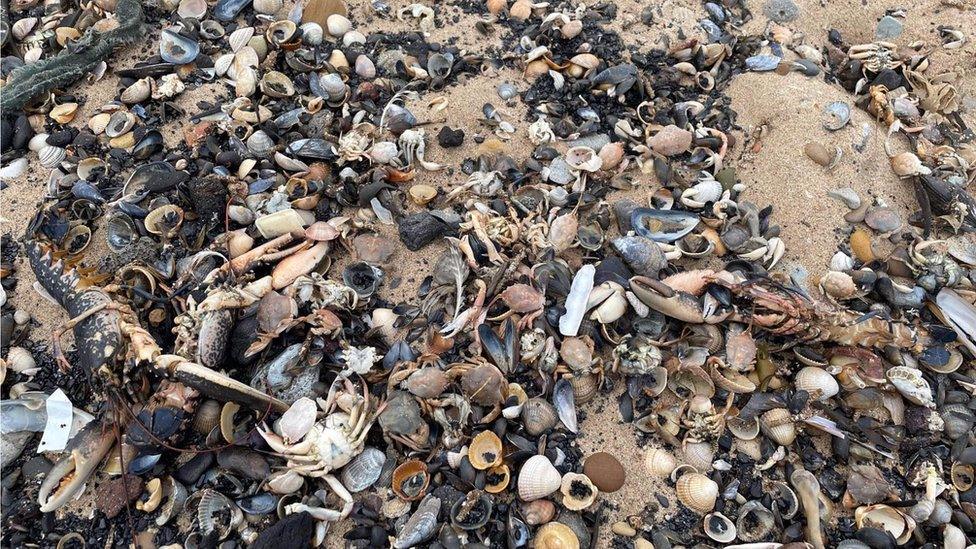
- Published16 January 2023
